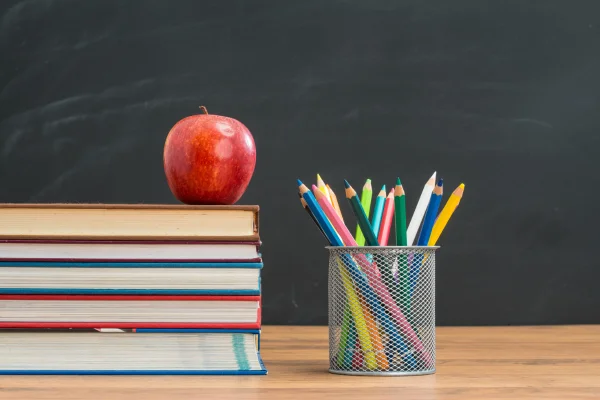Welcome to a journey of exploring how knowledge and education shape our lives. Whether you’re a student, parent, or just curious about the differences, this guide from CMR International School, Suraram, aims to illuminate these concepts for you. Let’s dive in!
Introduction
When we talk about personal growth and learning, the terms “knowledge” and “education” often pop up. They might seem similar, but they actually represent two distinct yet intertwined concepts. Think of knowledge as the raw material and education as the process that refines and organizes that material into something useful. By understanding the difference, you can better navigate your learning journey.
What is Knowledge?
Knowledge is the information, understanding, and skills acquired through experience or education. It’s what you know—facts, insights, and skills gained from various sources. Imagine knowledge as a vast ocean; it’s immense and ever-expanding, filled with countless pieces of information.
Key Points:
- Acquired Through Experience: Knowledge often comes from personal experiences and observations. For instance, knowing how to ride a bike comes from practice and experience.
- Can Be Passive or Active: Passive knowledge is like knowing historical facts, while active knowledge involves using that information practically, like applying mathematical principles in real life.
What is Education?
Education, on the other hand, is a structured process through which knowledge is imparted and acquired. It usually takes place in a formal setting, such as schools or universities, and involves a systematic approach to learning. Think of education as the map that helps you navigate the ocean of knowledge.
Key Points:
- Structured Learning: Education provides a structured framework for learning, including curriculum, classes, and assessments.
- Guided and Organized: Unlike informal knowledge, education is organized and guided by teachers, mentors, and institutions.
The Relationship Between Knowledge and Education
The interplay between knowledge and education is crucial. Education serves as a vehicle that helps individuals acquire and apply knowledge. Without education, gaining systematic knowledge could be challenging. Conversely, without knowledge, education might lack depth and relevance.
Key Points:
- Education Builds on Existing Knowledge: Education often starts with foundational knowledge and expands upon it.
- Knowledge Enhances Education: Prior knowledge can make educational content more relatable and easier to grasp.
The Role of Experience in Knowledge
Experience plays a significant role in shaping our knowledge. Real-life experiences provide insights and understanding that are often not covered in textbooks.
Key Points:
- Learning by Doing: Hands-on experiences, like internships or projects, often lead to deeper understanding and practical knowledge.
- Observation and Reflection: Observing the world and reflecting on experiences contribute significantly to knowledge acquisition.
How Education Builds on Knowledge
Education takes existing knowledge and refines it through structured learning. For example, learning math in school involves not just memorizing formulas but understanding their applications and solving problems.
Key Points:
- Curriculum Design: Education programs are designed to build upon prior knowledge, adding complexity and depth as students progress.
- Critical Thinking: Education fosters critical thinking by encouraging students to question and analyze information, enhancing their knowledge further.
Real-Life Examples of Knowledge and Education
Consider a scientist who might have deep knowledge about physics through personal research (knowledge) but acquires formal recognition and advanced skills through academic programs and degrees (education).
Key Points:
- Real-Life Application: A chef may gain knowledge through years of cooking (experience) but formal culinary education can enhance their skills and career prospects.
- Professional Development: Many professionals continue their education to update their knowledge and stay current in their fields.
Why Distinguishing Between the Two Matters
Understanding the difference between knowledge and education helps in setting clear goals and expectations. It allows you to seek the right kind of learning experiences and educational opportunities.
Key Points:
- Goal Setting: Knowing whether you need more knowledge or formal education helps in planning your personal and professional development.
- Educational Choices: It can influence decisions on whether to pursue formal degrees or focus on practical experience.
How to Cultivate Both Knowledge and Education
Cultivating both knowledge and education involves a balanced approach. Engage in continuous learning and seek formal education to expand and apply your knowledge.
Key Points:
- Lifelong Learning: Embrace lifelong learning through various sources like books, online courses, and seminars.
- Formal Education: Pursue relevant academic programs and courses to gain structured and comprehensive knowledge.
The Impact of Knowledge and Education on Career
Both knowledge and education significantly influence career development. Knowledge often provides the expertise needed in a field, while education can offer credentials and open doors to opportunities.
Key Points:
- Career Advancement: Educational qualifications can enhance career prospects, while knowledge can provide the necessary skills and expertise.
- Job Performance: Continuous learning and education can improve job performance and open up new career paths.
The Role of Schools in Fostering Both
Schools play a pivotal role in nurturing both knowledge and education. They provide a structured environment for acquiring knowledge and offer educational tools and resources.
Key Points:
- Holistic Development: Schools offer a well-rounded education that includes academic learning, social skills, and critical thinking.
- Supportive Environment: They create an environment that encourages curiosity, exploration, and academic growth.
FAQs
1. What is the main difference between knowledge and education?
Knowledge refers to the information and skills gained through experience or learning, while education is a structured process to impart and acquire knowledge.
2. How does knowledge contribute to education?
Knowledge provides the foundation upon which education builds, making learning more effective and meaningful.
3. Can you have knowledge without formal education?
Yes, you can gain knowledge through self-learning, experience, and observation without formal education.
4. How does education enhance knowledge?
Education organizes and refines knowledge, helping individuals apply it systematically and effectively.
5. Why is it important to understand the difference between knowledge and education?
Understanding the difference helps in setting clear learning goals and choosing the right methods for acquiring knowledge and education.
6. How can schools help in acquiring both knowledge and education?
Schools provide a structured learning environment and resources to acquire knowledge while offering formal education through curriculum and teaching.
7. Can real-life experience substitute for formal education?
Real-life experience can complement but not entirely substitute for formal education, as education provides systematic and comprehensive learning.
8. What role does lifelong learning play in personal development?
Lifelong learning helps individuals continuously acquire and apply knowledge, supporting ongoing personal and professional growth.
9. How can I balance acquiring knowledge and pursuing education?
Engage in both practical experiences and formal education to build and refine your knowledge effectively.
10. How can CMR International School support my learning journey?
CMR International School offers a holistic education that nurtures both knowledge and academic growth, preparing students for future success.
Conclusion
Understanding the difference between knowledge and education can significantly impact how you approach learning and personal development. By recognizing how they complement each other, you can better navigate your educational journey and leverage both to achieve your goals. At CMR International School, Suraram, we are dedicated to providing an environment that fosters both knowledge and education to help students excel in all aspects of their lives.
Admissions are in progress for 2024-25
Contact details: CMR International School, Suraram
+91 79930 17777
+91 79935 67777



